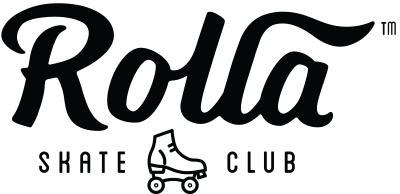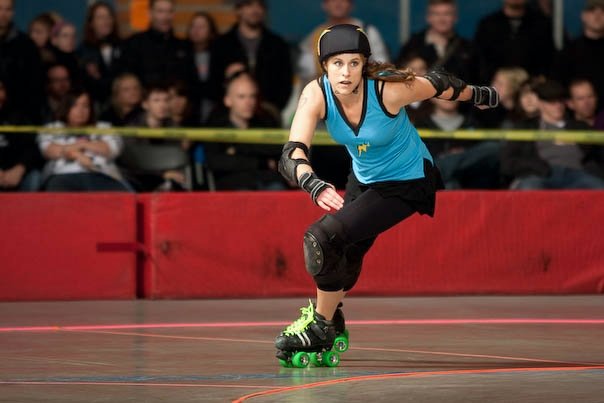When I had to come up with a roller derby name in early 2008, there were a lot of things I didn’t know.
Primarily, I barely knew how to play roller derby. I’d only been training in Terminal City’s “fresh meat” new skater boot camp for about 2 months.
I definitely had no idea that 13 years later, I would still be playing the sport, and still be known to many as “Booty Quake.”
I did not think ahead to how I would ultimately really wish I was not named after a body part (everyone calls me “Booty” for short).
I had zero clue that I would go on to start two derby and rollerskating-centered businesses (Roller Derby Athletics, and Rolla Skate Club), in which I would be very visibly personally associated with the brand. Basically, “Booty Quake” became my professional name and reputation. I introduce myself this way in many hundreds of videos on YouTube and gated content platforms through these businesses, which are out there in the world forever now.
But most critically, I had no idea that the name would come to be associated with cultural appropriation.
I’ll explain.
The name Booty Quake was based on the very common defensive move in roller derby known as a “booty block” in which the defender gets her body and butt in front of an opposing skater to slow her down and control her movement. Sure, it rhymes with booty shake, which could be a dance move, but every good derby name should be a double entendre. I like to get busy on the dance floor as much as the next gal, but a quake is the good, solid derby hit you’ll feel if you meet me on the track.
Back in 2008, (white, mainstream) pop culture had not yet learned what “twerking” is. We were about 5 years away from Miley Cyrus taking that dance move viral to white audiences. It’s a dance move that comes from African dance (specifically, the Mapouka dance from Cote D’Ivoire, according to some), and has been known to the Bounce music scene out of New Orleans since the ‘90s. Queer, Black artist Big Freedia was known as the Queen of Twerk long before Miley (or Katy Perry, or Taylor Swift, or a long list of white artists) sought to capitalize.
Not being a big follower of pop music, and living as I do in my white privilege, I was oblivious to the discourse that took place after the Miley Cyrus VMA performance about how it was deeply racist and appropriative. I learned very recently (thank you, my forever roller derby teammates of the Bad Reputations, especially my Black teammates) that some Black women most definitely DO NOT want white women to twerk.
It is painful for me to know that folks both inside and outside the derby world may have associated my roller derby name with something insensitive, appropriative, harmful, or racist. Whatever my intention was (or was oblivious to), the harm has been done. For that, I am deeply sorry, and ashamed.
I should be clear that the racist systems and structures that allow some of us to be oblivious to issues affecting oppressed groups remain in place. Changing my name doesn’t fix that. We all (white folks especially) have so much more important work to do, to dismantle them.
I share this story not to exonerate myself but in hopes of helping educate other white folks on how our choices, made in our oblivious privilege, impact others — particularly women of colour, and queer folks.
On the flip side, I am happy for this opportunity to introduce to you my new skate name. It’s time.
It will be hard work to scrub the old name from wherever I can on the internet, not to mention my own brain. It will be impossible to do it completely. But this “hard thing” was the easiest choice to make.
See you on skates,
– BiznessTime, #8
aka Coach Biz, Coach Bizzy, or just, “BT”
PHOTO CREDIT: Nicolas Charest, courtesy of our favourite skate shop, Rollergirl.ca
*This post was edited on 21 August 2021 to reflect feedback from my community, for which I am grateful.

